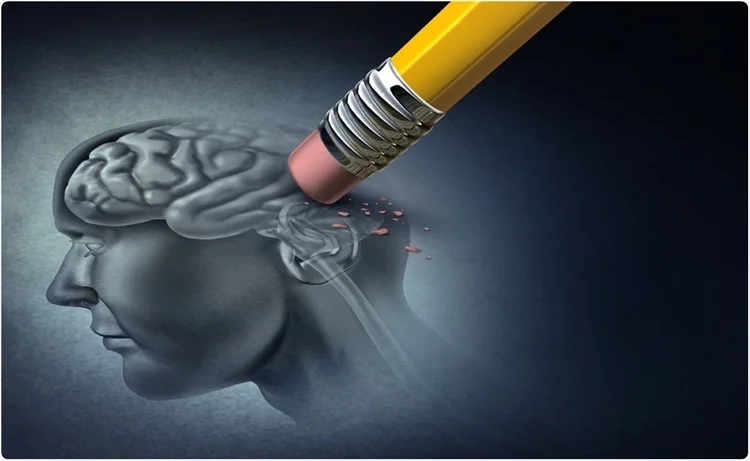 I will admit that I am not a neuroscientist, having focused my research on immunology and cancer cell biology, but I’ve always been aware of Alzheimer’s Disease and the quest for better treatments and an eventual cure. It is because I am not a neuroscientist that I rely on the word of purported experts in the field who have dedicated their careers to finding these answers. There are various caveats like the level of journal the research is published in, the quality of the images (at least to the naked eye), the number of times the research is cited, and the known reputation of the authors, that help to determine the level of trust one can put into the finding. Yet, we find that some things still might slip through the cracks, and this reminds us that we need to scrutinize data more thoroughly to hold each other accountable and maintain trust in science.
I will admit that I am not a neuroscientist, having focused my research on immunology and cancer cell biology, but I’ve always been aware of Alzheimer’s Disease and the quest for better treatments and an eventual cure. It is because I am not a neuroscientist that I rely on the word of purported experts in the field who have dedicated their careers to finding these answers. There are various caveats like the level of journal the research is published in, the quality of the images (at least to the naked eye), the number of times the research is cited, and the known reputation of the authors, that help to determine the level of trust one can put into the finding. Yet, we find that some things still might slip through the cracks, and this reminds us that we need to scrutinize data more thoroughly to hold each other accountable and maintain trust in science.
The Scientific Method
A graduate student instructor once told me rather passionately that science is not an absolute, but that it needed to be continually tested and re-tested to refine theories and models. This has stuck with me for decades as I hold a healthy skepticism on any research I come across. Despite this skepticism, during my dissertation research, I took the publications I read to be starting points from which to either build on the research or to potentially refine a model based on observations that might potentially invalidate the model.
Even as mostly objective scientists, we are all human with inherent biases, and we are going to accept findings that corroborate our world view (and in this case, our own research, because it’s not fun to admit that you’re wrong!). The safeguard is that, because publications are peer reviewed for the most part, there are referees to monitor and scrutinize the data to ensure that an experiment was properly designed and has satisfactorily supported the author’s conclusions. However, because time and effort are finite, even with a peer review process, some things might slip through the cracks, and this appears to be what happened with a landmark Alzheimer’s research finding.
Erosion of Trust?
A big stink in the scientific community was raised recently when Science Magazine posted an article regarding the fabrication of data in several studies, including a landmark article in Nature in 2006. There has been a cacophony of responses from both sides of the argument, and defenses from colleagues at the University of Minnesota as well.
There is apparently enough evidence of fabrication that this is potentially jarring for the Alzheimer’s research community, depending on whom you speak with. Some are obviously and justifiably angry at the amount of funding and potential loss of life wasted on a dead end. Others contend that this fabrication only affects one type of amyloid folding, and should not invalidate decades of research into other amyloid based diagnostic and treatment strategies.
Well-designed experiments and stringent peer review is required to authenticate science and ensure trust among the public. Fraud claims as outlined in the Science article could very well erode that trust, per Harvard scientist Dennis Selkoe:
Selkoe’s bigger worry, he says, is that the Lesné episode might further undercut public trust in science during a time of increasing skepticism and attacks. But scientists must show they can find and correct rare cases of apparent misconduct, he says. “We need to declare these examples and warn the world.”
As a non-expert, it is logical to accept the idea of amyloid aggregates disrupting normal cellular functions by clogging up vesicular transport mechanisms. It also helps us understand how the original finding, and subsequent findings derived from it, could also be accepted by the field of both experts and non-experts alike. The hope is that scrutiny and re-examination will help authenticate the research to build trust.
Finding the Answer
One of the more interesting twists in this unfolding (ha) drama is that the whistleblower, Dr. Matthew Schrag of Vanderbilt, appears to have a conflict of interest. Schrag was originally commissioned to investigate a drug manufactured by Cassava Sciences, and Schrag’s own research is at odds with Cassava’s drug claims. However, other scientists have examined the images and suggest that fabrication may be possible. Given the months of research to provide enough evidence to make fraud claims, it may take just as long to confirm whether fraud has truly occurred, and whether this fraud actually adversely affected an entire generation of research.
As Selkoe said above, we need to continue to employ safeguards to protect against scientific fraud. With continual pressure to publish in order to obtain funding and build reputations, the temptation to cut corners and publish spotty or outright fake data is high. When this does happen, it is refreshing, albeit jarring, to see articles such as this one in Science Magazine outlining the investigation and allegations.
Now, it is up to scientists far more qualified than myself to further investigate this accusation and to determine what damage, if any, has been caused by any faked data. Although the colleagues of the accused researcher, Sylvain Lesné, have spoken out and have been mostly absolved of misconduct themselves, Lesné has not made comments on his own behalf at this time. Whether Lesné is culpable or exonerated, this incident and others are clear examples of how science can falter, and how hard the field has to work to maintain and restore the public's faith in science.




